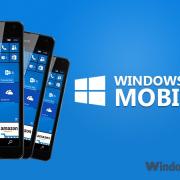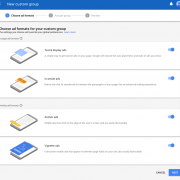Microsoft gives up on Windows 10 Mobile
Microsoft appears to have abandoned its smartphone operating system ambitions.
The company's Windows 10 chief has tweeted that developing new features and hardware for the Mobile version of the OS was no longer a "focus".
Joe Belfiore added that he had also switched to Android himself.
Windows 10 Mobile tried to attract users by letting them run the same "universal apps" on both their PCs and handsets, but the concept failed to catch on.
The OS accounted for just 0.03% of the global market - based on smartphone shipments - between April and June, according to research company IDC.
The market intelligence provider said the news had been a long time coming.
"There wasn't a wide range of devices running Windows 10 Mobile, so it wasn't attractive to retailers or operators," said IDC's Francisco Jeronimo.
"And from a consumer perspective, the operating system didn't provide as good an experience as Android or iOS."
Mr Belfiore began a series of tweets on Sunday by discussing the recent launch of a test version of Microsoft's Edge web browser for Android and iOS - the latest in a series of releases of its core software for rival mobile platforms.
He then went on to respond to questions about whether there was any point sticking with Windows 10 Mobile.
He said that while Microsoft would support the "many companies" that had adopted the platform, he had switched to Android for the diversity of its apps and hardware.
"Of course we'll continue to support the platform... bug fixes, security updates, et cetera," he said.
"But building new features or hardware is not the focus."
Mr Belfiore posted Microsoft had tried "very hard" to incentivise other companies to release universal apps - even writing their software for them in some cases - but the number of users had been too low for most to bother.
The announcement comes a week after HP had said it no longer planned to release further Windows 10 Mobile handsets, and a fortnight after Microsoft co-founder Bill Gates disclosed that he had already made the switch to Android.
However, some manufacturers - including the UK's Wileyfox and Germany's TrekStor - had unveiled new models powered by Windows 10 Mobile as recently as last month.
"Most Microsoft applications are now available and supported on other mobile operating systems," said Mr Jeronimo.
"After Satya Nadella took over [as chief executive], that clearly became the strategy - and after that happened what incentive was there to buy a Windows-powered phone?"
However, Microsoft may not have given up on powering smartphones altogether.
Earlier this year, Windows Central reported the company was working on a new version of Windows 10 - codenamed Andromeda - that would run on all types of computer and make it possible for third-party apps to adapt without having to code a special "universal" version.
It said the OS was due for release next year, but suggested the code would not be offered as an upgrade to existing Windows 10 Mobile devices.
A spokeswoman for Microsoft was unable to provide further comment.










